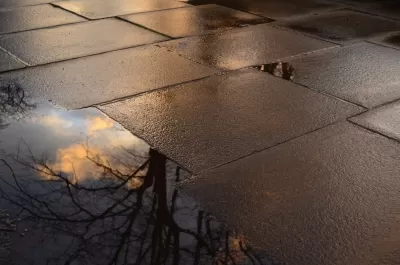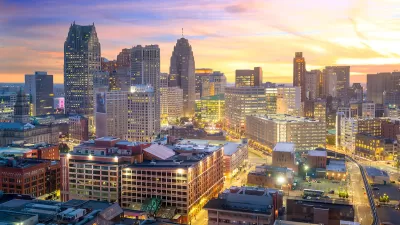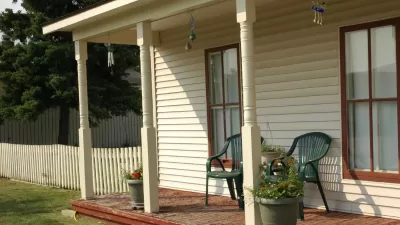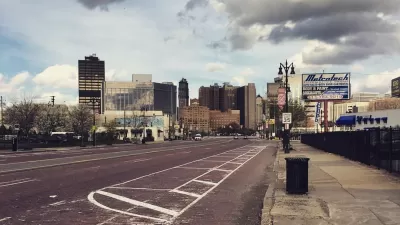The city says the increased fees that many people are seeing reflect a more equitable billing system, but residents argue the charges are unfair.

Detroit water and sewer bills have risen quickly since the city rolled out a new drainage fee structure last year. In the past, residents paid a flat rate, and businesses were supposed to be charged based on the size of their water pipes or the "impervious acreage"—the area on the property covered with materials that prevent the absorption of water. The result, reports Joel Kurth, was that rates varied considerably and owners of large parcels often had lower drainage bills.
Now property owners pay $598 per impervious acre, and many have seen their monthly bills increase dramatically. They say the fees are unfair, particularly in a city with high tax rates and poverty levels. Questions have also arisen about whether the new charges are a fee or a tax. A tax, residents say, would require voter approval under Michigan state law.
"Detroit officials say the rates are fair, lowering fees for 56 percent of all residents and equitably spreading the cost of treating wastewater," says Kurth. But the city has also spent $1 billion in recent years to update its wastewater treatment facilities. The projected $150 million a year the new drain fees will bring in will help the city repay these infrastructure costs.
FULL STORY: Detroit is billing residents for rain. It’s going as well as you’d think.

Study: Maui’s Plan to Convert Vacation Rentals to Long-Term Housing Could Cause Nearly $1 Billion Economic Loss
The plan would reduce visitor accommodation by 25,% resulting in 1,900 jobs lost.

Alabama: Trump Terminates Settlements for Black Communities Harmed By Raw Sewage
Trump deemed the landmark civil rights agreement “illegal DEI and environmental justice policy.”

Why Should We Subsidize Public Transportation?
Many public transit agencies face financial stress due to rising costs, declining fare revenue, and declining subsidies. Transit advocates must provide a strong business case for increasing public transit funding.

Paris Bike Boom Leads to Steep Drop in Air Pollution
The French city’s air quality has improved dramatically in the past 20 years, coinciding with a growth in cycling.

Why Housing Costs More to Build in California Than in Texas
Hard costs like labor and materials combined with ‘soft’ costs such as permitting make building in the San Francisco Bay Area almost three times as costly as in Texas cities.

San Diego County Sees a Rise in Urban Coyotes
San Diego County experiences a rise in urban coyotes, as sightings become prevalent throughout its urban neighbourhoods and surrounding areas.
Urban Design for Planners 1: Software Tools
This six-course series explores essential urban design concepts using open source software and equips planners with the tools they need to participate fully in the urban design process.
Planning for Universal Design
Learn the tools for implementing Universal Design in planning regulations.
Smith Gee Studio
Alamo Area Metropolitan Planning Organization
City of Santa Clarita
Institute for Housing and Urban Development Studies (IHS)
City of Grandview
Harvard GSD Executive Education
Toledo-Lucas County Plan Commissions
Salt Lake City
NYU Wagner Graduate School of Public Service





























